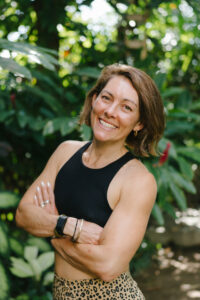University of Oxford
11a Mansfield Rd
OX1 3SZ
UK

Hollie Booth
24th April 2024
1 minute read
Author

Hollie Booth
I completed my DPhil in the Biology Department in 2021 on Interdisciplinary Approaches to Shark and Ray Conservation, with a focus on small-scale fisheries in Indonesia. Since then I have been working with local researchers, NGOs and decision-makers in Indonesia to put my findings into practice, by designing and testing incentive-based approaches for marine biodiversity and human wellbeing outcomes with support from the Oxford Policy Engagement Network (OPEN) and the UK Darwin Initiative. This includes running the world's first Randomized Controlled Trial (RCT) of an incentive-based marine conservation program for Critically Endangered sharks and rays. In parallel, I have been working on mechanisms for improved accountability for nature-related impacts and dependencies in the private sector, through approaches to operationalise ambitious and evidence-based Nature Positive commitments which mitigate the negative environmental impacts of corporate value chains and channel funding towards measurable, additional and socially-just biodiversity outcomes. I am generally interested in conducting applied interdisciplinary research to make conservation more effective and socially just.
Aside from my research work at Oxford, I have also worked in the non-profit and private sector, with roles spanning community-based tourism and protected area management in East Africa; shark and ray fisheries and trade in SE Asia; and global environmental policy and corporate biodiversity strategies.
I grew up in Birmingham, and was the first person from my family to go to university after attending a poorly-performing state school. As such, I am passionate about promoting participation of women, minority groups, and people from low-income backgrounds in academia and conservation.
